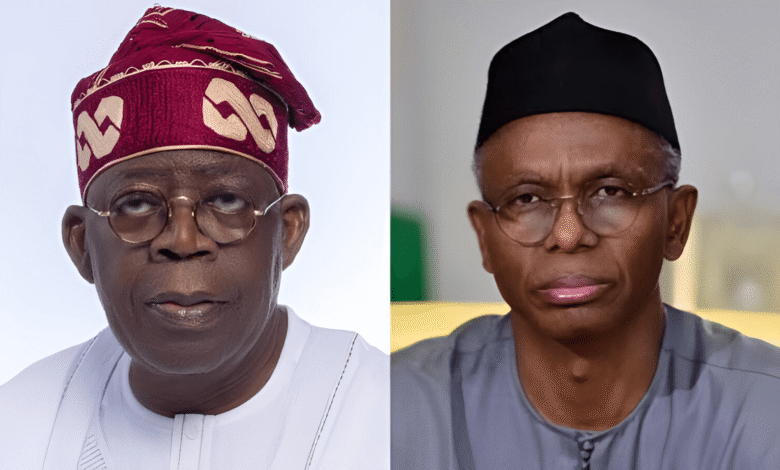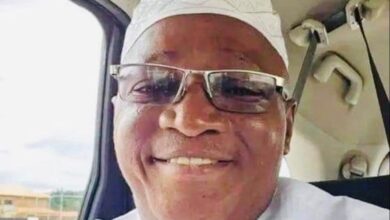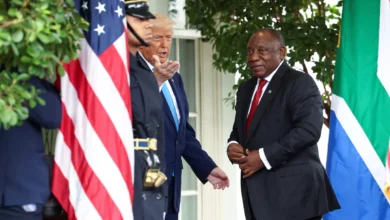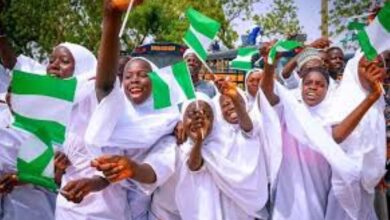El-Rufai says ‘a governor only has one vote’, plays down wave of political defections to APC

Former Governor of Kaduna State, Malam Nasir Ahmad El-Rufai, said his defection to the Social Democratic Party (SDP) is informed by the need to build a platform free from godfatherism and internal dysfunction.
El-Rufai made the remarks in Kano on Monday while briefing newsmen on why he decamped to the SDP.
The former governor noted that Nigeria urgently needs a credible political alternative to rescue it from existential threats.
He said he was in Kano to visit the Emir of Kano, Muhammadu Sanusi II, and to meet with SDP leaders to strategize on building a strong grassroots political movement in the state.
“Kano is critical to any serious political formation because of its consistently high voter turnout. After joining the SDP, it was important to come and engage with stakeholders here,” El-Rufai stated.
On why he abandoned the APC, a party he helped to form, El-Rufai said the political realities in Nigeria had changed.
“Twelve years ago, we merged three major parties to form the APC and defeated an incumbent president. But now, the goal is different.
“We are bringing together disaffected members across political divides under an existing platform — the SDP — which we believe has the best pedigree and potential,” he said.
He said the SDP offers a fresh opportunity, being a platform not controlled by any individual.
“We have seen how godfatherism destroyed the PDP and is now wrecking the APC.
“Nigerians deserve a party built on fairness, internal democracy, and equal opportunity. The SDP can be that alternative,” he said.
Responding to suggestions that he was acting out of frustration after being sidelined politically, El-Rufai dismissed the notion, saying he had no personal ambition left to pursue.
“I am 65 years old. I have served Nigeria at the highest levels; minister, governor and I could simply retire. But I believe Nigeria is facing an existential crisis. This is about the country’s survival, not personal gain,” he said.
On the contentious debate about rotational presidency, El-Rufai said while he previously advocated for a power shift to the South, Nigeria’s challenges now demand that competence and leadership capacity, not geography, should determine who leads.
“Our problems are too severe to care about where the next president comes from. We need someone with vision and the ability to fix Nigeria’s fundamental issues,” he said.
Speaking on the wave of political defections across the country, mostly to the ruling APC, El-Rufai said he was not concerned.
“A governor only has one vote. Elections are won by the people, not by politicians. Our focus is on mobilizing ordinary Nigerians, not chasing high-profile defections,” he stated.
On perceptions that the SDP is a northern movement, El-Rufai said the movement is national and growing quietly across southern Nigeria.
“You are seeing northern energy because we’re currently in Kano. But I have been engaging leaders across Lagos, Anambra, and the South-South. Nation-building is grassroots work, not media shows. You’ll see the results when the time is right,” he noted.
He also confirmed ongoing coalition talks involving five major political groups aimed at forming a strong opposition movement under the SDP.
“It’s a broader national movement for disillusioned Nigerians. Progress is being made, although I had to move faster in Kaduna because many of my political associates needed an immediate platform,” he said.
Defending his criticism of the APC, a party he helped to build, El-Rufai said his loyalty had always been to Nigeria, not to any individual or political party.
“When things began to go wrong under President Buhari, I wrote to him warning about the dangers.
“When the naira redesign policy hurt Nigerians, I challenged it in court, even though it was an APC-led government. I have never been loyal to individuals over the nation,” he said.
El-Rufai urged young Nigerians not to lose hope, calling on them to join efforts to build a new political movement.
“Nigeria gave me everything despite being an orphan at eight years old. Every Nigerian child deserves the same opportunity.
“If you are frustrated and angry, channel it into building a better future. We must not abandon Nigeria to corrupt politicians and their godfathers,” he charged.





